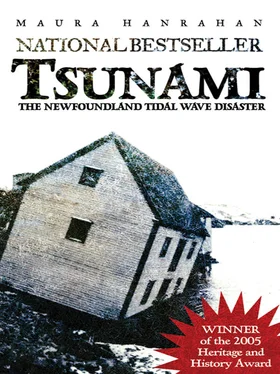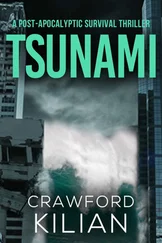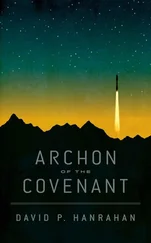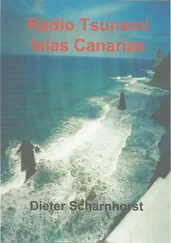“I am only tired, that’s all, not grief-stricken, like my patients. If I rest, what shall happen to these people?” Nurse Cherry said, her face the colour of a ripening tomato. “After all they have been through.”
“You are not alone now,” Dr. Mosdell answered. “We have a medical staff on board, physicians and nurses both. The people here are no longer entirely dependent on you. The burden is off you alone.”
Dalton waited for a look of relief to cross Nurse Cherry’s face but it did not come. Instead, her mouth remained hard and her chin, held defiantly high.
“Gentlemen,” she said finally. “I resent the way you took me out of that home, making the decision yourself and taking charge of me as if I am not in my right mind.”
Mosdell and Dalton exchanged quick glances.
“My responsibility as a doctor extends to you, too, Nurse Cherry,” Mosdell said quietly. “When I see a woman exerted beyond a point that is safe, I have to do something about it, as you know. I think now we ought not to spend more time discussing it. It is cold up here, don’t you think? Shall we have some tea down below?”
“I don’t think I want any tea right now,” Nurse Cherry answered.
“Come with me, Nurse Cherry,” Captain Dalton said. “I’ll find Nurse Rendell. She’ll show you what a comfortable bunk we’ve prepared for you.”
He breathed a low sigh when the Englishwoman followed him to the cabin. In the hallway he introduced her to Nurse Rendell and turned quickly on his heel when he had passed her over. Up top again, he met Mosdell.
“We’ll have her in Burin tomorrow,” he told the doctor. “And she can rest there a couple of days. I’ve arranged return passage for her on the Argyle .”
“Well!” laughed Dr. Mosdell. “She could certainly use the rest! She’s wound up as tight as a drum!”
Dalton thought of Cora and the kind words she unfailingly had for her elderly and frequently contrary aunts.
“She’s been through a lot,” he said ploddingly. “She’s tired and overwrought, poor woman.”
Before the Meigle pulled out of St. Lawrence, the expedition party met with the local committee and charged them with supervising relief measures as they had with their counterparts elsewhere. Meanwhile, Captain Dalton and his crew took account of the damage the tsunami had done to the town. The harbour was desolate; all the stores and stages on both its sides had been swept away. Little black lumps of coal floated in the harbour, like a torment to the cold people on shore. The winds blew dark ash off them. Cracked oars drifted in on the beach. Thwarts, broken in two, flopped onto the rocks, in a blunt offering. Women could only glance hard at these things and close their eyes. The men tried hard not to think of spring when the fish would start coming in. How would they catch it?
When news of the situation at St. Lawrence reached Magistrate Hollett in Burin, he telegraphed Prime Minister Squires in the capital. As Squires read of the devastation in St. Lawrence, the largest settlement in the area, he clutched his chin tight and sucked in his breath. His face grew white as he realized that every time a message came from the South Coast the picture was more grave than originally thought. Worries over the disaster invaded his every thought. Squires lay awake night after night, shifting helplessly in his bed, wondering if his government had sent enough supplies. How would his government pay for the rest? It was almost a month now since the stock market crashed and the meaning of that event was beginning to sink in. As the days went by, the administration in St. John’s still did not have a good fix on the death toll on the lower portion of the stricken peninsula. That would only come with a full report from the Meigle .
Still the dire messages from Burin kept coming. When Hollett visited St. Lawrence, soon after the Meigle left, he wrote to Squires: “The people are in a state of dire destitution. Immediate assistance is necessary.”
There was, though, no loss of life at St. Lawrence. The people had seen the waves coming and had headed for higher ground. Though rebuilding their town would be a long, hard task, men and women would sometimes cast their eyes to the sky and bless themselves, murmuring prayers of gratitude that no one had died that terrible night.
In Burin, Captain Dalton saw that Nurse Cherry had an escort to take her to the home of the local Nonia nurse, where she could stay and rest for a couple of days before returning home to Lamaline. She smiled as she left the ship, to his relief.
“Thank you for kidnapping me, Captain,” she said.
Dalton smiled back, almost confident that she was joking.
The skipper’s first order of business here was to meet with Magistrate Hollett so the two men could bring each other up-todate on the aftermath of the tsunami . When everything was straightened away on the Meigle , Dalton walked to Hollett’s home with the magistrate who had come to the dock to greet him. The captain noted that Hollett hadn’t lost any of the worried look he wore when Dalton first met him the other day.
“My wife has hardly seen me in days,” Hollett said. “And Lucy is so patient.” The two men sat in Hollett’s dark parlour on overstuffed chairs sipping tea that needed warming. In the high-ceilinged quiet of the place, Dalton could almost forget the high dose of tragedy he’d witnessed in recent hours. But Hollett leaned forward, eagerly.
“One of the strange things,” he said, “is that men from the schooners reported no disturbance at sea. The first inkling they had of disaster came from the debris they saw floating past. And what a sight that was…very unexpected, indeed, as you would know more than me, Captain.”
“That’s the way these tsunamis work, sir,” Dalton responded. “It’s the land that gets the damage, not the sea. They’re not storms at sea, at all. If you’re close to shore, you’ll feel a swell, but that’s all. I’ve never experienced one, myself, and I wasn’t out that night. I was safe at home in St. John’s where we thought there was an explosion at the mines on Bell Island, due to the noise the great wave made. Later I heard that St. John’s harbour had emptied for a few minutes. Then I knew there’d been a tsunami , or tidal wave, most people call it. But I knew old fellows who’ve seen the devastation they cause in the Indian Ocean and places south. They wreck entire villages and towns—people sometimes move away rather than rebuild in some cases. Never heard them do much damage this far north, though.”
“Nor have I,” Hollett answered. Dalton noted that he was wide-eyed in the manner of someone who still didn’t believe what was happening.
“We ran out of drugs on board,” Dalton reported. “There were a lot of sick people. Mosdell and the others, the nurses, said there was a lot of call for drugs because so many people don’t have enough bedclothes and they’re living in overcrowded conditions, passing on illnesses to each other. Then the shock and grief made them more vulnerable to illness.”
“So what did you do?”
“We went to St. Pierre and got more supplies. We were in Lamaline, which isn’t far from the French islands, when we ran out. And we knew there were just no stocks left anywhere on the Burin Peninsula. I must say, the French medical people were so helpful. The French authorities, too—they readily offered their port facilities to us most generously.”
“And thank God St. Pierre and Miquelon weren’t affected by the tidal wave,” Hollett added. “So far from their own government in Paris.”
“We didn’t bring sufficient building supplies, either,” Dalton said. “So I ordered ten thousand feet of lumber through the Manager of the Railway to go there on the Argyle . On the Meigle we had roofing supplies, nails, and glass, and we gave all that away, though, as I say, it was not nearly enough for every community.”
Читать дальше












